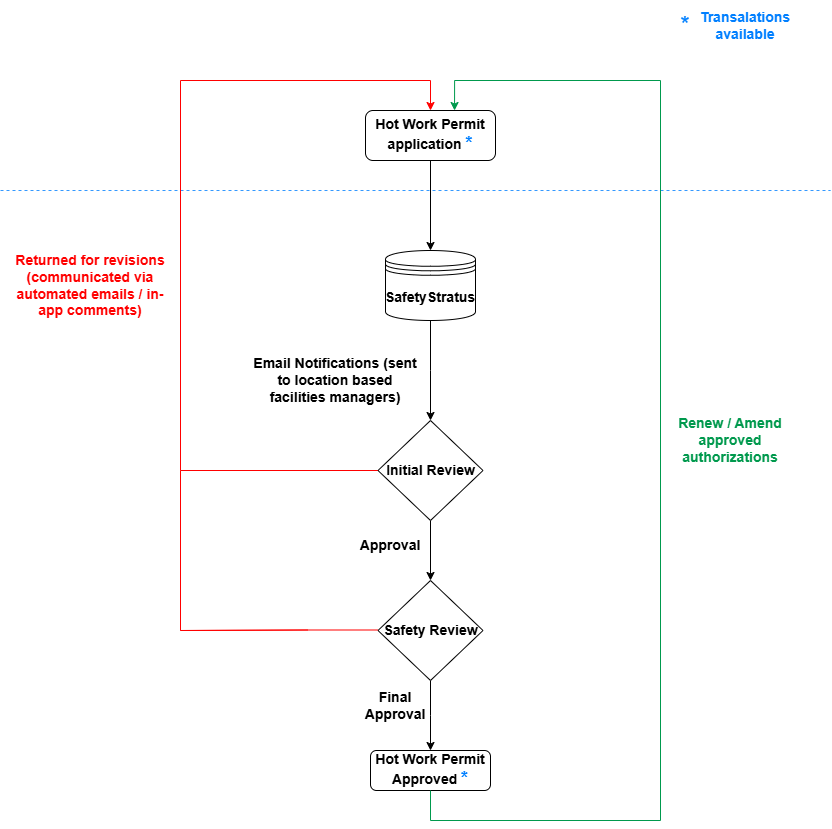Global real estate and investment management companies are responsible for managing a wide portfolio of assets for their clients at facilities across diverse locations and time zones. The core operations at these facilities include repairs, maintenance, upgrades, and installations typically performed by third-party contractors/ vendors permitted to work through a contractor work authorization process. These authorizations must be meticulously managed to ensure compliance with complex laws, safety compliance, communication, and documentation.
Consider a scenario where a client requires a major facility renovation and upgrade in a remote location. A complex project like this would require several contractor work authorizations such as a Hot Work Permit, Confined Space permit, Working at Heights permit, Risk Assessments, Electrical Work Permit etc. Effective management of these authorizations becomes a complex but crucial task to successfully execute this project. In a rapidly evolving interconnected environment, businesses encounter several major challenges in handling this procedure. Some of these obstacles include the absence of a uniform vetting procedure that could lead to hiring contractors who may lack the necessary skills or credentials. Lack of efficient coordination and communication across various local languages, time zones, and locations resulting in misunderstandings and miscommunications that may result in project delays. Lack of centralized data management systems leading to incomplete or outdated work authorizations.
These challenges can be mitigated by adopting technological solutions that can help streamline and automate the contractor work authorization process. A centralized, cloud-based platform like the SafetyStratus permit authorization system can be an amazingly effective tool to manage the vetting process, reduce operational costs and ensure compliance. This system allows for a very convenient method for onboarding new contractors through a no-login feature that allows them to start and submit authorization applications without an account. Additionally, the system translates these applications into local languages based on the contractor’s location. Any required documentation and certification can be attached to the applications. Submitted applications are automatically routed to local facilities managers to begin the vetting process with real-time access to the most current information and documentation. The system also provides comprehensive notification and in-app commenting features for facilities managers to communicate with the contractors and ensure that the applications meet the necessary approval criteria. Approved authorizations are automatically available on site so authorized contractor personnel can be checked in to the site to perform their tasks. The system tracks and notifies contractors of expiring authorizations so renewals can be started to ensure they comply with the latest requirements. Contractors can also manage personnel turnover during the validity period by amending their current authorizations to ensure the presence of the right personnel on site.

Contractor work authorization management is a vital function of global real estate and investment management companies. By leveraging the right technology tools, companies can streamline their process and ensure compliance with local laws, effectively communicate with all stakeholders, standardize vetting procedures, and bring operational efficiency across diverse locations.
AUTHOR BIO:-

Krishna Durbha is a Lead Subject Matter Expert at SafetyStratus with over three years of experience guiding enterprise clients across construction, real estate, higher education, and IT infrastructure.
He writes to connect practical safety challenges with technology-driven solutions and is passionate about helping organizations strengthen their safety and compliance programs through effective strategies.
